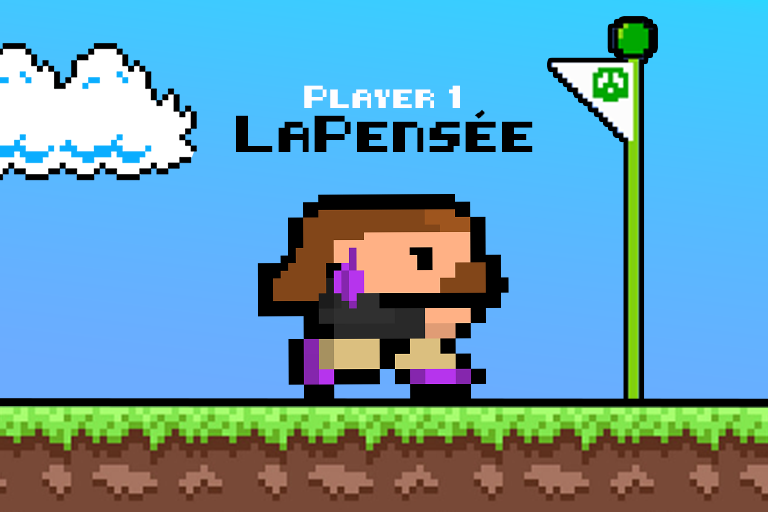A game developer, graphic novelist and researcher at MSU's ComArtSci, Assistant Professor Elizabeth LaPensée, Ph.D., joined the 2020 class of honorees to the Women in Games Hall of Fame.
LaPensée was inducted during the inaugural Women in Games Global Awards in September. Founded in 2009, the non-profit Women in Games (WIGJ) partners with companies like Dovetail, Outplay, 2K, Sumo Digital and Amazon Web Services to promote a games industry, culture and community free of gender discrimination. The hour-long awards event was streamed from the United Kingdom to nominees, conference goers and supporters of women professionals in video, mobile, online games and esports.
“The work that Women in Games contributes to uplifting women is essential for the possibilities of where games can go,” said LaPensée, an assistant professor of media and information and writing, rhetoric and American culture. “It’s humbling to be inducted alongside incredible women, including role models and mentors Brenda Romero, Jessica Hammer and Sande Chen.”
An award-winning designer, writer, artist, researcher and 2018 Guggenheim Fellow, LaPensée creates and studies Indigenous-led media such as games and comics. She is Anishinaabe with family from Bay Mills, Métis, and Irish.
LaPensée’s game design and artwork includes When Rivers Were Trails, Thunderbird Strike, Honour Water and several analog games. She has created curriculum for the Skins Workshops, and run game development workshops since 2015 with Indigenous partners across the United States. In 2017, she received the Serious Games Community Leadership Award for her dedication to advocacy and reaching new communities through her work.
In addition to gaming, LaPensée is giving rise to Indigenous voices through a comic collection series published in November by the Michigan State University Press. Co-edited by Anishinaabe poet and novelist Gordon Henry Jr., Sovereign Traces is the first in a series of illustrated stories by Indigenous writers examining residential schools, ongoing incarceration, and Indigenous women’s well-being.
LaPensée said much of her work is informed by fluent language speakers, storytellers, knowledge carriers and her upbringing in an Anishinaabe family influenced by Indigenous Futurisms and medicinal knowledge. A lifelong game lover, she said she grew up wanting to play characters she could identify with. Not finding that, she struck out on a path to offer different representations.
“I hope to draw attention to issues such as the climate crisis, the impact of colonization on indigenous communities, land and all interconnected life; and the role of genuine sovereignty,” she said. “I also hope to design experiences that give peoples spaces to focus, to breathe, to absorb and to reflect.”
By Ann Kammerer
